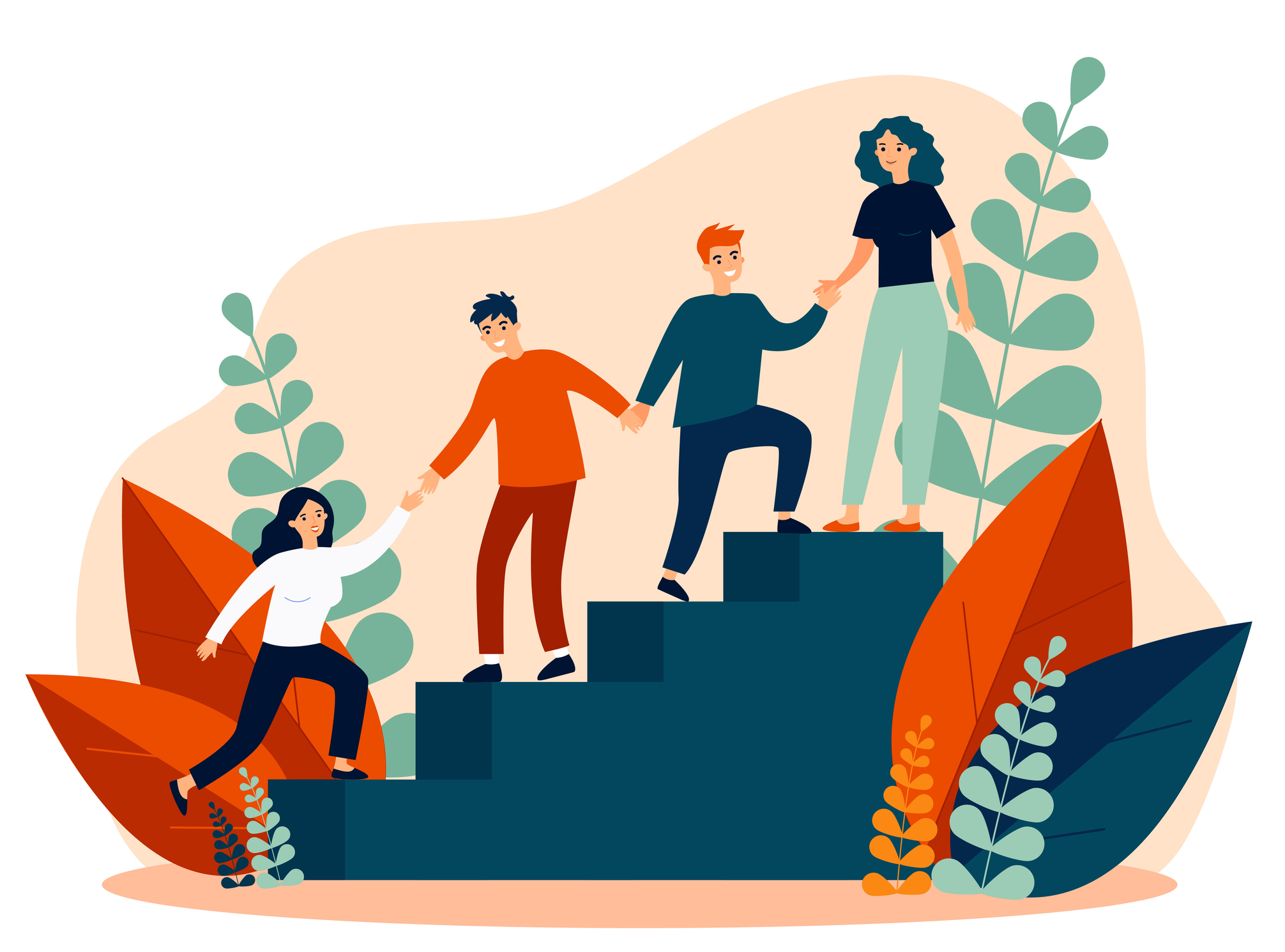As the semester comes to an end, we are pleased to share the 2025 Spring…
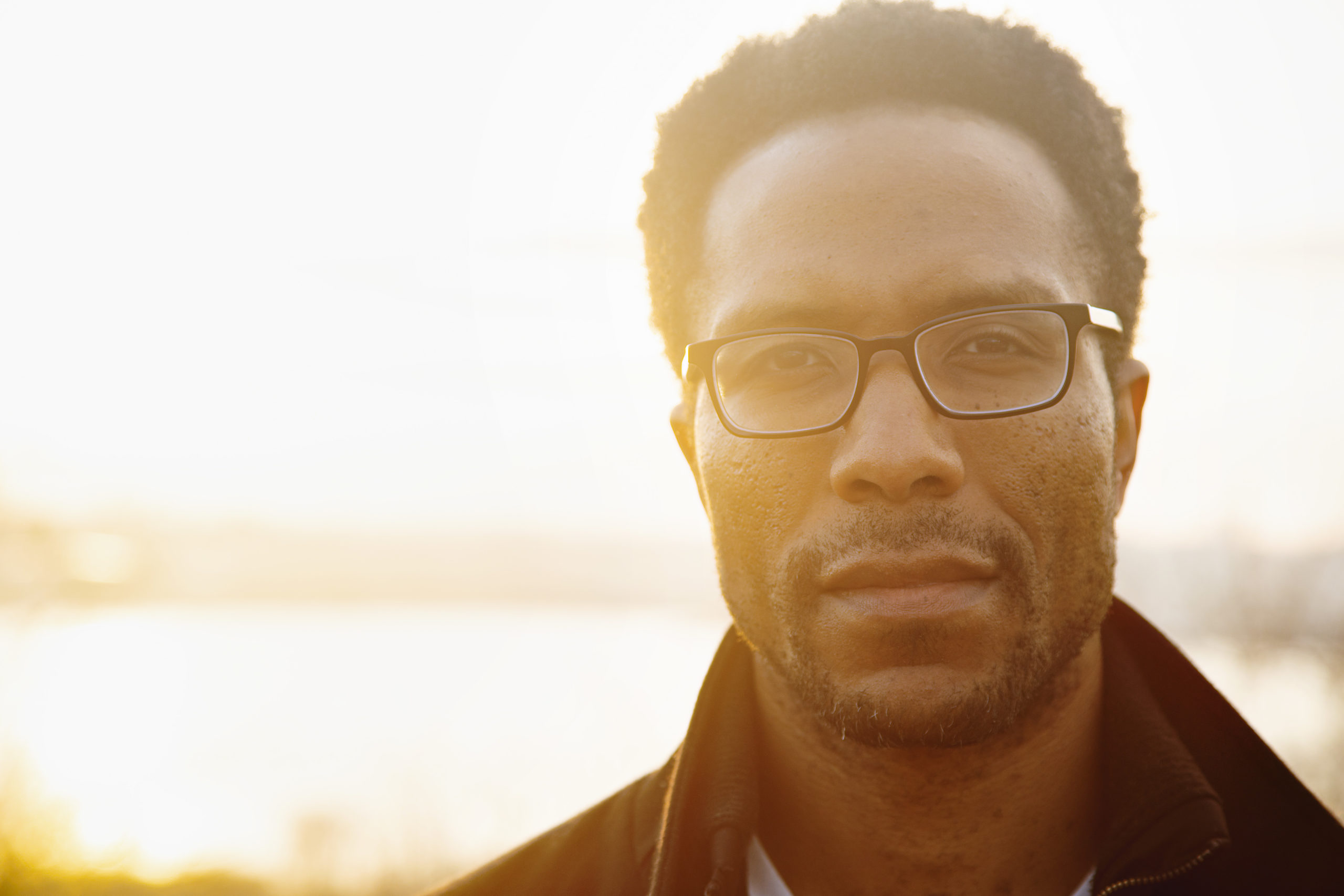
Sparks from Creative Collisions: A Conversation with Multimedia Artist Daniel Callahan
During a challenging time to make art, Daniel Callahan is immersed in projects. A multimedia artist who currently resides in Jamaica Plain, Callahan works in music, painting, digital photography, sculpture, film, writing, and performance. He is a recipient of the Donor Circle for the Arts Grant and the New England Foundation for the Arts Creative City Grant as well as a Mass Cultural Council’s CYD Teaching Artists Fellow and 2021 Creative Entrepreneurship Fellow of the Arts & Business Council of Greater Boston.
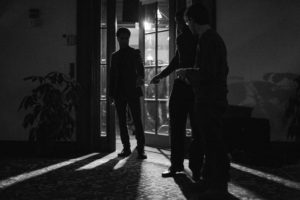 For an artist with such a range of talents, there isn’t a line between each of the mediums Daniel works with. Growing up in Boston, his experience attending church and listening to hip hop showed him a template for ways to hold space for many mediums within an artistic tradition.
For an artist with such a range of talents, there isn’t a line between each of the mediums Daniel works with. Growing up in Boston, his experience attending church and listening to hip hop showed him a template for ways to hold space for many mediums within an artistic tradition.
“I grew up with so many different types of artworks and art mediums intertwining,” he said. “With the church, there was music but there was also this rich oratorical tradition: telling stories and speaking.”
In addition to his experiences at church, Daniel also grew up listening to Hip Hop, in itself a multimedia tradition, including MCing, DJing, Beatboxing, and Break Dancing.
“Many of the traditions that I really loved always had this mix, and the cool thing was people did everything. Your beatboxer would also do graffiti, your MC would also DJ, so I think it was just normal for me to be able to do anything.” And while he has experience in many mediums, he adds, “I’m constantly learning, and my artwork is always pushing me to new mediums which I then have to learn.”
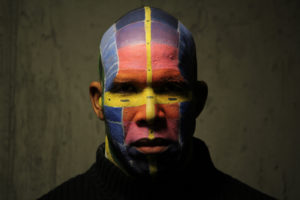
As a painter, one of Daniel’s current focuses is his MassQ project, a practice of applying paint to the face which emerged from a study of indigenous practices of body decoration around the world. Originating during time spent in California, the project bloomed in Boston where Daniel held a MassQ Ball in 2017 at Roxbury’s Hibernian Hall which included Brazilian Capoeira, Haitian couture fashion design, and a performance by his partner organization, Castle of Our Skins – a music and education series highlighting classical composers of color. He also recently held a MassQ workshop at the Arnold Arboretum this past October.
“MassQing is this art form that I do that flips the notion of what a mask is. Usually, we wear masks to hide our identity or to transform into something else or even to protect us, like the masks we all have become so accustomed to wearing,” Daniel explains. “But what I try to do is to use paint to reveal things about people instead of to conceal. It’s always been a very spiritual, cultural space of communion for me, and to see it be that for other people is really gratifying.”
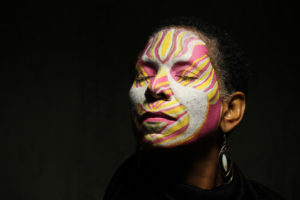
MassQing exists in two forms — MassQing oneself, which Daniel recommends people do first and MassQing another person, which requires a connection and a conversation. Unlike the kinds of face painting one might find at a fair, Daniel’s work is not a made-to-order image, but instead, something that emerges from long conversations with the subject whose face is being painted.
“I find out more about them, who they are, what they care about, and what they’re struggling with. In the process of that, I get some face time with them, and, looking at their face, I start seeing shapes and color.”
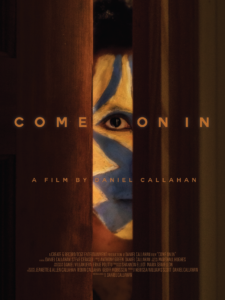
Daniel has also been working on numerous other projects over the past few years, wearing his many artistic hats. He attended graduate school at Emerson College where he received an MFA in Film and Video. For his Master’s thesis, he directed, wrote, and acted in a feature-length film entitled Come On In. It is a psychological thriller and “a deep dive into the mind of a creative” which Daniel plans to release in February 2022.
During the pandemic, Daniel embarked on another film project, an act of connection while everyone he knew was isolated and sequestered. Coming from a series of Zoom interviews he conducted, this film is a documentary on COVID-19 called The Color of Corona. The film focuses on “The dual impact of COVID-19 and structural racism on Black and Brown communities specifically in Boston.” Daniel found that the stories he was collecting were so “poignant and rich” that he wanted to share them with others. The film is nearing post-production and includes scenes from “the protests that were going on last year and some of the efforts people were taking to deal with the challenges of the pandemic.”
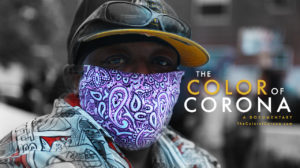
Daniel has also delved into the world of performance, from being in the center spotlight to crafting scenery. He created a one-man show about his relationship with hip hop, which he recently developed and performed at an artist’s residency at Artisan’s Asylum and hopes to perform again soon. He also contributed sculptural work for the set design of the musical Wild, now showing at the American Repertory Theater, which Daniel describes as an “amazing fantastical fable around the climate crisis.”
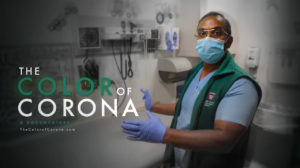 Beyond his artistic projects, Daniel is strongly committed to community engagement. With deep roots in Roxbury and an investment in making a difference for cultural spaces and artists, he was appointed President of the Board of Trustees of The Roxbury Cultural District (RCD) last year. The RCD was designated by the Massachusetts Cultural Council in May 2017 with the mission of amplifying Roxbury’s cultural assets and elevating its artistic community. According to Daniel, its founding was extremely significant as “Roxbury had been historically undervalued and underinvested, and to recognize [it] as the rich cultural source that it’s been throughout the years is really a big deal. I very much take seriously my role as trying to elevate that and preserve that in the face of the changes and gentrification that’s starting to happen in Roxbury.”
Beyond his artistic projects, Daniel is strongly committed to community engagement. With deep roots in Roxbury and an investment in making a difference for cultural spaces and artists, he was appointed President of the Board of Trustees of The Roxbury Cultural District (RCD) last year. The RCD was designated by the Massachusetts Cultural Council in May 2017 with the mission of amplifying Roxbury’s cultural assets and elevating its artistic community. According to Daniel, its founding was extremely significant as “Roxbury had been historically undervalued and underinvested, and to recognize [it] as the rich cultural source that it’s been throughout the years is really a big deal. I very much take seriously my role as trying to elevate that and preserve that in the face of the changes and gentrification that’s starting to happen in Roxbury.”
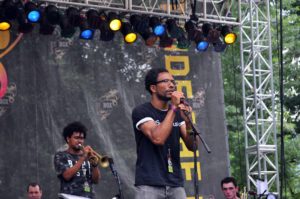 While supporting a community during the pandemic is incredibly challenging, Daniel argues that it is all the more important to be active, especially to support Black and Brown communities who have been disproportionately affected this past year and a half. To combat this, establish Roxbury as a destination, and to celebrate its cultural and economic richness, the Roxbury Cultural District recently put on Nubian Nights. This project, a partnership with the soon-to-open Jazz Urbane Cafe, was a virtual concert where performances of musicians soon to appear live at the cafe were projected onto the building itself.
While supporting a community during the pandemic is incredibly challenging, Daniel argues that it is all the more important to be active, especially to support Black and Brown communities who have been disproportionately affected this past year and a half. To combat this, establish Roxbury as a destination, and to celebrate its cultural and economic richness, the Roxbury Cultural District recently put on Nubian Nights. This project, a partnership with the soon-to-open Jazz Urbane Cafe, was a virtual concert where performances of musicians soon to appear live at the cafe were projected onto the building itself.
“We ran it for three weeks and by the third week, we had a lot of people coming out to see it,” Daniel shared. “[We] were able to activate the space, to bring attention to the cafe before it opens, and bring attention to their artists. And then obviously it was great that we were able to put some money into their pockets for their work.”
For Daniel, this work is personal. While he grew up in Boston, he spent time away in Philadelphia and California, and upon his return, Roxbury has supported him tremendously.
“I was so pleasantly surprised by the amount of support for my artwork that I received here and the amount of opportunities that came back. It became a really important space of healing for me personally, and so I will forever be indebted to Boston, especially Roxbury,” Daniel said.
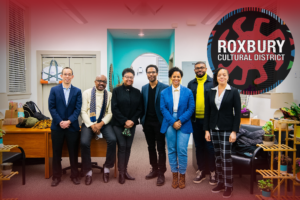 This support he has received inspires him to contribute in the ways that he can. “I’m not really very interested in getting into politics. I’m not a doctor, I can’t give care in that way. But as an artist, I can create work that I can share with my community but I can also be an advocate for arts, [for] kids specifically. Art is so important to their development, it pays dividends even if you don’t end up being an artist, in the skills you learn from it and in that sense of self-actualization [and] finding your voice.”
This support he has received inspires him to contribute in the ways that he can. “I’m not really very interested in getting into politics. I’m not a doctor, I can’t give care in that way. But as an artist, I can create work that I can share with my community but I can also be an advocate for arts, [for] kids specifically. Art is so important to their development, it pays dividends even if you don’t end up being an artist, in the skills you learn from it and in that sense of self-actualization [and] finding your voice.”
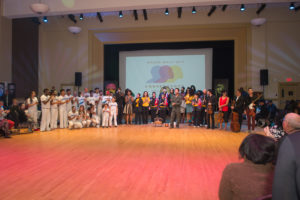 With many disparate, yet engaging projects, Daniel is deeply rooted in the Boston artistic community. He harbors a love for collaboration and learning from others of different disciplines, cultures, and traditions. “I think that too often we get siloed in our creativity. I think creativity comes from bringing not just like-minded but different minds together. The sparks that come from those collisions is really where creativity comes from.”
With many disparate, yet engaging projects, Daniel is deeply rooted in the Boston artistic community. He harbors a love for collaboration and learning from others of different disciplines, cultures, and traditions. “I think that too often we get siloed in our creativity. I think creativity comes from bringing not just like-minded but different minds together. The sparks that come from those collisions is really where creativity comes from.”
Daniel is now an adjunct faculty member at Emerson, yet his curiosity and willingness to learn and be challenged are stronger than ever.
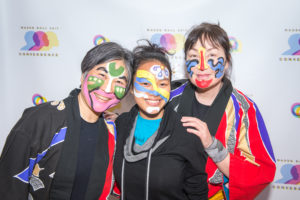 “We don’t have a very good infrastructure of support for artists, so we have to make that on our own. You really can’t have support without community, and so that’s always been something that’s guided my practice,” he said. “I’m so excited to work with other people, especially people from other disciplines. That’s why I love multimedia artwork so much because I work with a dancer, I can work with a singer-songwriter, I can work with a fabric artist to create something so new that I could never do on my own. And I can learn through their craft things that I wouldn’t learn on my own.”
“We don’t have a very good infrastructure of support for artists, so we have to make that on our own. You really can’t have support without community, and so that’s always been something that’s guided my practice,” he said. “I’m so excited to work with other people, especially people from other disciplines. That’s why I love multimedia artwork so much because I work with a dancer, I can work with a singer-songwriter, I can work with a fabric artist to create something so new that I could never do on my own. And I can learn through their craft things that I wouldn’t learn on my own.”
Daniel Callahan’s sculptural work is currently on display in the show Wild running through January 2 at the American Repertory Theater. Buy tickets here. To learn more, visit danielcallahan.com and sign up for his newsletter to hear updates about his projects, or find him at www.facebook.com/DanielCallahanArt.
This interview was conducted on December 10 by Molly Tucker and has been edited for length and clarity.

